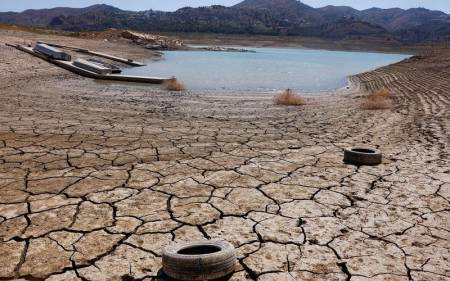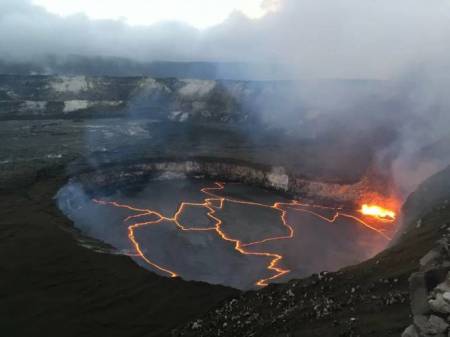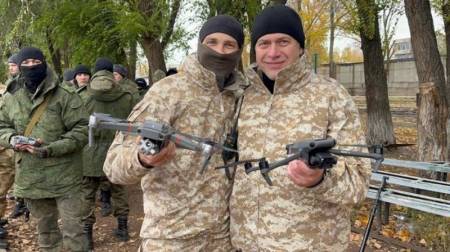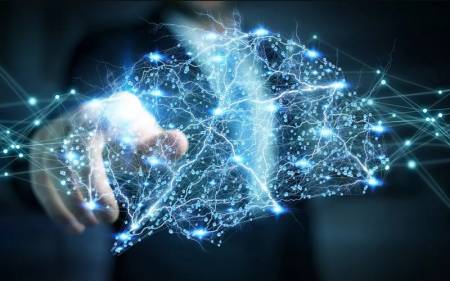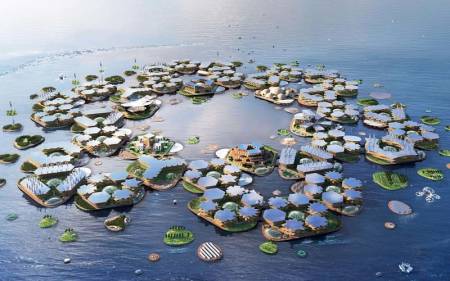Speech of the NGO “Center for Development of Humanistic Ecology and Culture”.
Speech of the NGO “Center for Development of Humanistic Ecology and Culture” (HUMEC)
HDIM 2019
OSCE ODIHR
Side-Event on 25 September 2019, 18-15 – 19-45
Human rights and frontier technologies: to find a balance between progress and humanism”
Warsaw, Poland
„Anthropological Charter”: sustainable and conflict-free development is possible only on the basis of humanistic ideals
Center for Development of Humanistic Ecology and Culture (HUMEC) is an independent NGO, based in Russia. The purpose of HUMEC's work is to develop the concept of humanistic ecology and culture, which is based on the balance of human development and preservation of natural environment and cultural heritage. One of the main fields of HUMEC's research are the anthropological aspects of the challenges of technological and social development of mankind in the 21st century.
Today it is a time to rethink our attitude to frontier technologies in the way of priority of human rights and human dignity. We would like to present today at HDIM-2019 our project - a philosophical manifesto “Anthropological charter” – a document for international discussion - what are the actions the international community can take to contribute to maximize the benefits and mitigate the risk associated to rapid technological change?
In June 2018 this document was approved by the Second BRICS Young Leaders Meeting in Ulyanovsk, Russia. In May 2019 a representative of HUMEC spoke in Geneva at the 22nd session of the United Nations Commission on Science and Technology for Development, where we presented the project "Anthropological Charter", dedicated to the anthropological aspects of the challenges of technological and social development of mankind in the 21st century and to the problems of understanding human rights in the context of the development of frontier technologies.
As it was mentioned by the documents of the UN General Assembly in 2014, our commitments to sustainable development, inclusiveness and human rights require that the emerging information society be shaped in the interests of humanity in order to maximize the benefits of new technology and minimize the risks that it may pose.
The past twentieth century has passed under the sign of progress. Progress was declared to be the highest, absolute value. But it would be a big mistake to follow the concept of constant development of the material sphere due to the rejection of religious and moral ideals. Progress cannot be an end in itself, an absolute value. Today, we need a development that combines technical progress with moral improvement. Further, we need such a development, which combines progress with the development of culture. Development must not lead to the unification of the world. Uniformity is a companion to death. On the contrary, the sign of life, the sign of development, is the accumulation of diversity. Including the diversity of cultural values.
We believe that there can be no one formula for progress for all peoples. The world's largest nations, leading civilizations, offer their own paths to the future, each of which is a contribution to the common heritage of mankind. These paths are based on the unique historical experience of each people. Every nation is a bearer of its own cultural code. Successful development is possible only in harmony with the cultural code. Attempts to break it, even in the name of progress, lead to disaster.
What issues are included in the "Anthropological Charter“?
IDEALS AND VALUES
Does material and technological progress always contribute to human rights, preserve human dignity and create conditions for equality and justice?
Although current developments in biotechnology, genetic engineering, artificial intelligence and robotization open up new possibilities for humanity, they also raise very serious concerns. It is becoming ever more urgent to address the questions: What are the fundamental limits of human identity? What role does the spiritual dimension of the human being play in this context? How can we describe and preserve the image of Man in the present, complex era of human existence?
Does material and technical progress always promote human rights and human dignity? Does it always create conditions for equality and justice? We cannot ignore the worrisome fact, that some directions of technological development threaten to undermine the very essence of Man as a rational and spiritual being, and also to “dehumanize” social and economic relations.
To respond to these new challenges, society needs a system of integrative spiritual values, embodying the noble destiny of human life. Now is the time to rethink past experience and to consider what would actually happen, if the spiritual basis of our existence were eliminated from everyday life. It is necessary to rethink, in a deep and comprehensive way, the basic human right to having a spiritual identity, to having spiritual values; the right to strive for spiritual self-improvement, inspired by moral ideals, as a basic human need. It is also important to reflect upon how to defend the human potential for spiritual development and to guarantee the individual’s right to realize that potential.
FREEDOM AND DIGNITY
The urgent necessity to take a critical approach to the use of artificial intelligence for analysis and prediction of human behavior and social processes.
Based on technological progress, the scale and scope of data collection concerning all aspects of human life has constantly expanded: data about communications between people, about their movements, their financial transactions, their activities on the Internet, their work and personal interests. Collection and analysis of such data by transnational corporations, performed with the stated aim of better targeting of advertising and optimizing information flow has made the private lives of people more and more permeable and transparent. Hence it is urgently necessary to protect the population from every form of encroachment on the security of their confidential and private information*.
Another cause of concern is the growing tendency to regard human beings as mere objects whose behavior is biologically predetermined and predictable and can be simulated by means of artificial intelligence, rather than recognizing them as true individuals with unique personalities, endowed with free will and self-consciousness. The result is to undermine the dignity of the human personality.
It is absolutely essential to preserve the concept of the unique value of every human individual, and to prevent the creation of a system of total control over human beings. It is also necessary to take a critical attitude toward applications of artificial intelligence systems for analysis and prognosis of human actions and social processes. Human individuals must not be treated as entities defined by some list of measurable characteristics, and whose behavior is predictable – like that of a machine
*Article 2 of the Charter on the Preservation of Digital Heritage, adopted by the General Conference of UNESCO on October 15, 2003.
UNITY AND PEACE
Attempts to artificially eliminate the fundamental values upon which human existence is based, will inevitably lead to large-scale crises, wars, economic and social chaos.
In the course of history many different civilizations have emerged on this planet – each of them embodying a totality of social, geographical, economic and religious factors, giving rise to the unique set of lifestyles and development models. The sense of belonging to a specific, unique civilization – of being actively involved in that civilization – is an essential part of the personal self-identities of billions of people, defining the richness and complexity of their inner life. For these reasons, maintaining the civilizational diversity of human society constitutes an important anthropological challenge.
The idea of a single, universal cultural model for the whole world is a dangerous Utopia. Historical practice shows that the ideology of expansionism, based on a cultish belief in the exclusiveness and superiority of one’s own system, has always ended in defeat. The human communities which have demonstrated the ability for long-term development have always been those rooted in fundamental moral ideals of humanism, solidarity, the striving for peace, respect for human life, and concern for the general welfare.
Attempts to artificially eliminate the fundamental values upon which human existence is based will inevitably lead to large-scale crises, wars, economic and social disruptions which endanger the stability of the whole world. The futility and destructiveness of attempts to impose a unipolar world order with a subordinated hierarchy have become evident. Today humanity, as a conglomerate of many civilizations, needs a different mode of development.
THE VALUE OF LABOR AND CREATIVITY
It is necessary to uphold the fundamental human right to labor, whatever the achievements of robotization.
The division between work and leisure in people’s lives has always had an important social meaning, and must also be regarded as a human value. The passion for work expresses itself as an active striving to contribute to the good of society, community and family. Hence work cannot and must not be regarded as a mere commercial activity. Through work human beings develop their creative abilities and contribute to the creative transformation of reality. It is absolutely indispensible to uphold the human right to labor, despite the progress of robotic technologies.
The Universal Declaration of Human Rights, signed 70 years ago, states: “All human beings are born free and equal in dignity and rights. They are endowed with reason and conscience...”.* Today we must be alarmed at the growing tendency to regard entire masses of people as “useless” – as people who only need to be provided with the bare necessities of life – while little attention is given to creating social and economic frameworks which would guarantee to every individual human being the right to high-quality work, leisure, professional and social self-realization.
The growth of inequality and the increasing economic pressures upon people’s lives, are having negative effects in the sphere of leisure. The impact of the modern entertainment industry is to unleash people’s primitive instincts in an uncontrollable fashion, replacing healthy relaxation by a state of numbness and stupefaction. The combination of work and leisure, which essential to fully realize the rights and personal freedom of the population, can only be attained when the economic organization of society gives greater priority to the development of human potential – to securing the spiritual and material wellbeing of the population – than to generating profits.
*Article 1 of the Universal Declaration of Human Rights, adopted by the United Nations General Assembly on December 10, 1948 (Resolution 217 А (III)).
PRESERVATION OF THE HUMAN IDENTITY
The achievements of genetic engineering must contribute to the good of humanity, and not the opposite.
The human genetic pool embodies our tremendous potential for physical and intellectual development. Its gradual evolution in the course of time is a natural process, but rapid artificial changes in the genome can be dangerous not only for individual people, and even for humanity as a whole.
Alongside important new possibilities for treating illnesses, the artificial editing of the genome opens the door to creating human beings with predetermined properties. The same result might also be attained through the integration of artificially-produced technological elements into living organisms.
The presently dominant social model of “survival of the fittest” can lead to the emergence of a society where certain individuals will be able to benefit from the above-mentioned achievements in terms of prolongation of life, healing of illnesses, for cloning themselves and even obtaining new, “super-human” qualities; while other people suffer from lack of medical care or will be “modified“ to make them suitable for a life of marginalization and new forms of slavery.
In this situation the most urgent task is to preserve the original archetype and unity of humanity. Methods of genetic engineering which stand in possible opposition to the principle of human dignity must be prohibited*. The capabilities of genetic engineering must be directed, first of all, to the treatment of illnesses and the negative effects of genetic mutations. These technologies must be equally accessible for all persons, independent of their social status. The mission of genetic engineering is the preservation, rather than the destruction, of human nature.
*United Nations Declaration on Human Cloning, adopted by the United Nations General Assembly on March 8, 2005 (Resolution 59/280).
THE PRIORITY OF LIFE
The task of protecting human life and the surrounding natural environment must be the absolute priority for global policy.
It is logically and morally imperative to combine the struggle to save endangered biological species together with the struggle to save peoples and cultures which are in danger of dying out. The effort to preserve the ecological balance in Nature must go hand in hand with the struggle to maintain the ethnocultural balance of human society. As a source of exchanges, innovation and creative work, cultural diversity is as necessary for humanity, as biodiversity is for Nature.*
The existence of nuclear weapons poses serious risks to humanity, but the call to outlaw nuclear weapon in favor of other kinds of armaments does not solve the problem of attaining a world without war. On the contrary, such an approach promotes an increase in violence, by “legalizing” the development of military technologies which can be used against specific countries and peoples. Particularly cynical, in this context, is the development of new types of weapons which target human beings while leaving the environment untouched.
The preconditions for a robust and stable world, given the present-day pace of scientific and technological progress, clearly do not lie in the prohibition of specific types of weapons, but rather in a change in the prevailing ways of thinking. Humanity must achieve a common understanding, that the use of violence for achieving political or economic goals is morally inadmissible.
* Article 1 of the UNESCO Universal Declaration on Cultural Diversity, adopted by the United Nations General Conference on November 2, 2001.
FAMILY AND MORALITY.
Raising a family is a special form of creative spiritual and social labor -- shared labor carried out in the name of mutual understanding, support, and happiness.
Raising a family is a special form of creative spiritual and social labor -- shared labor carried out in the name of mutual understanding, support, and happiness.
A marriage cannot be fully complete without children. Children are a spiritual, and not merely a biological continuation of the lives of the husband and wife. Today, in contrast, the carnal side of human reproductive functions is shameless exploited for commercial purposes. As a result many in the young generation have lost their capacity to reconcile biological instincts with the principles of love and moral responsibility. Defending the ideals of purity and moral beauty in the relationship between man and woman is a common mission of humanity in the 21st century.*
While emphasizing the existential spiritual value of paternity and maternity, we must give at least as much attention to the material conditions that are necessary for children to fully develop. The life which parents give to the child must not be reduced to the mere physical birth of the child. A human childhood is unthinkable without parental care, education, and sufficient material security. No social or state institution can replace the family. The future of humanity depends absolutely on the cohesion, love and sense of responsibility of the family.
*Programmatic Document of the 13th Worldwide Russian People’s Council, “Future Generations are the National Endowment of Russia”, May 23, 2009.
SOLIDARITY AND JUSTICE
Despite all progress, inequality continues to increase worldwide. A tiny class of super-rich individuals expand their assets while the bulk of the population become poorer.
Globalization has turned into the endless competition to attract investment by cost-reduction, i.e. by lowering the cost of labor and reducing social expenditures. Entire regions of the world become trapped in a process of social and economic degradation, and the result – mass migration – further weakens their potential to develop.
If the present vectors of global policy remain unchanged, an ever larger portion of the population will excluded from active participation in the economy. Even in the prosperous countries, increasing numbers of citizens are being transformed into “useless ballast”, as more and more jobs are filled by imported laborers having no legal rights, and plans for robotization hold the perspective of eliminating human beings from the labor process altogether. Under these conditions various forms of racism threaten to spread into society, targeting especially the most vulnerable and defenseless groups of the population, such as handicapped persons, women and refugees.
Faced with these dangers, the world needs new strategies for economic and social development. It needs strategies which are not based on the primacy of the strong and the subservience of the weak, but rather on solidarity and equality – on the ability to share the burdens of life together with others; to provide a worthy place in society for each individual human being, and an equitable distribution of the products of labor. Every country has the right to adopt the economic and social system which it finds most suitable for its own development; and no country should suffer any kind of discrimination for this reason.*
* Declaration on the Establishment of a New International Economic Order, adopted by the United Nations General Assembly on May 1, 1974 (Resolution 3201 (S-VI))
STRIVING FOR OBJECTIVE TRUTH
Regardless of how information space may develop in the future, it must not be allowed to degenerate into a platform for the propagation of lies and mistrust
Against the background of declarations about the inviolability of the right to free exchange of information, opinions and ideas, we witness a serious narrowing of the space for freedom and mutually respectful dialog in the Internet. The Internet becomes more and more an instrument for disguised commercial manipulation and PR campaigns, in which practically no mechanisms exist for the verification of information, and in many cases even the sources remain anonymous. This situation permits individuals to spread information and data on a gigantic scale without having to assume responsibility for truth or authenticity, including deliberately propagating certain opinions, views and theories while suppressing others.
In this context certain ideas, which are shared only by a minority of the population, are being imposed upon the majority of inhabitants of our planet, whose traditional values become marginalized and virtually excluded from the informational space. Such practices become especially dangerous they are used to incite social conflicts, to incite discord between nations and religious groups, and to undermine trust in family values and in public institutions.
Regardless of how the sphere of information may develop in the future, it must not be allowed to degenerate into a platform for the propagation of lies and mistrust. Just as honesty serves as a criterion of the personal morality of an individual, so also society must preserve honesty in the sphere of knowledge and information.
THE CAPABILITY FOR SELF-RESTRAINT
Humanity as a whole must orient to the principles of rational self-restraint and responsibility.
A utilitarian, exploitative attitude toward fellow human beings and toward the environment, is characteristic for the consumer society and for its extension into the virtual domain, where ethical restraints are more and more often ignored in favor of new experiences and forms of arbitrary self-expression.
Transferring communication between human beings into the domain of social networks blurs the distinction between the personal and public spheres. Today this has already caused a decline in the quality of discussion, promoting an atmosphere of mutual impatience, in which the ability to reach measured judgments is being lost and replaced with monosyllabic reactions like “I like it” or “I don’t like it”, based on mere emotions and the pursuit of ratings and “likes”.
The virtual space “without rules” incites people to pursue their desires without any limits or consequences, including even the lowest and most sordid impulses, the desire to achieve popularity and attention at all costs, to demonstrate aggression and violence, and to incite others to hatred and discord. All of these undermine the capacity – fundamental to each human individual, as a being possessing dignity and free will – to take conscious responsibility for one’s own words and actions.
Rational self-restraint and responsibility must serve as norms for all human beings, regardless of whether they are acting in the real world or in the so-called virtual domain.
The philosophy of Ecohumanism
The more human activity, the less the globe seems to be, the more important the attitude towards nature becomes. There are two contradictory tendencies: the first is the aggressive protection of nature from any human intervention, and the second is transhumanism, the ultimate overcoming of human nature with the help of technology and the inevitable complete break with nature. Against this background, we would like to set out a different path avoiding these extremes - ecohumanism, a harmonious combination of the natural world with human needs. Humanity and nature are not in opposition to each other, but complement each other and interact in the improvement of the world.
Conclusion
As we can see, the movement in the XXI century is associated with a large number of problems, challenges, difficulties, which often endanger the existence of humanity or the essence of man.
Solving all these problems and overcoming them is seen as a way to strengthen human solidarity, mutual assistance and love. Whether it is the problem of international conflicts, migration crises, loss of jobs in the course of robotization or inaccessibility of medical technologies - all this requires moral improvement of society, strengthening of solidarity between people. This is the main component of progress in the humanistic understanding.
Let us think together about how to ensure sustainable and conflict-free development based on humanistic ideals for our countries and how to fill the entire range of fundamental human rights and freedoms with real content, not with declarative content.
Our practical recommendations for ODIHR OSCE:
- to counter discrimination on the basis of cultural and religious identity;
- to counter discrimination for commitment to traditional family models;
- in the context of right for life, denial of medical care to terminally ill patients, especially children, should be declared inadmissible in the OSCE region;
- to call for the prevention of scientific experiments with biotechnologies that allow external control over the human body and mind;
- to warn public institutions and the corporate sector against the use of bio- and IT technologies for manipulation with human consciousness and public opinion;
- to pay attention to the problem of job losses as a result of robotization, which may affect socially vulnerable groups and especially women;
- to call for the renunciation of the use of technologies that degrade human dignity and violate the right to freedom of choice;
- to call for the right to freedom of information to be guaranteed and to prevent journalists reporting on civil conflicts in the OSCE region from being persecuted;
- to call on the international community to protect the human right to privacy and give priority to this right over uncontrolled collection and aggregation of digital data;
- in particular, to call for the prohibition of the use of personal data and their publication by state and non-state structures in order to exert pressure on journalists, public figures and other persons. Disclosure of personal data in this context can provoke not only hate speech, but also hate crime, including violence and murder;
- to express OSCE position on the priority of human rights and dignity over technological efficiency in all areas of frontier technologies.



